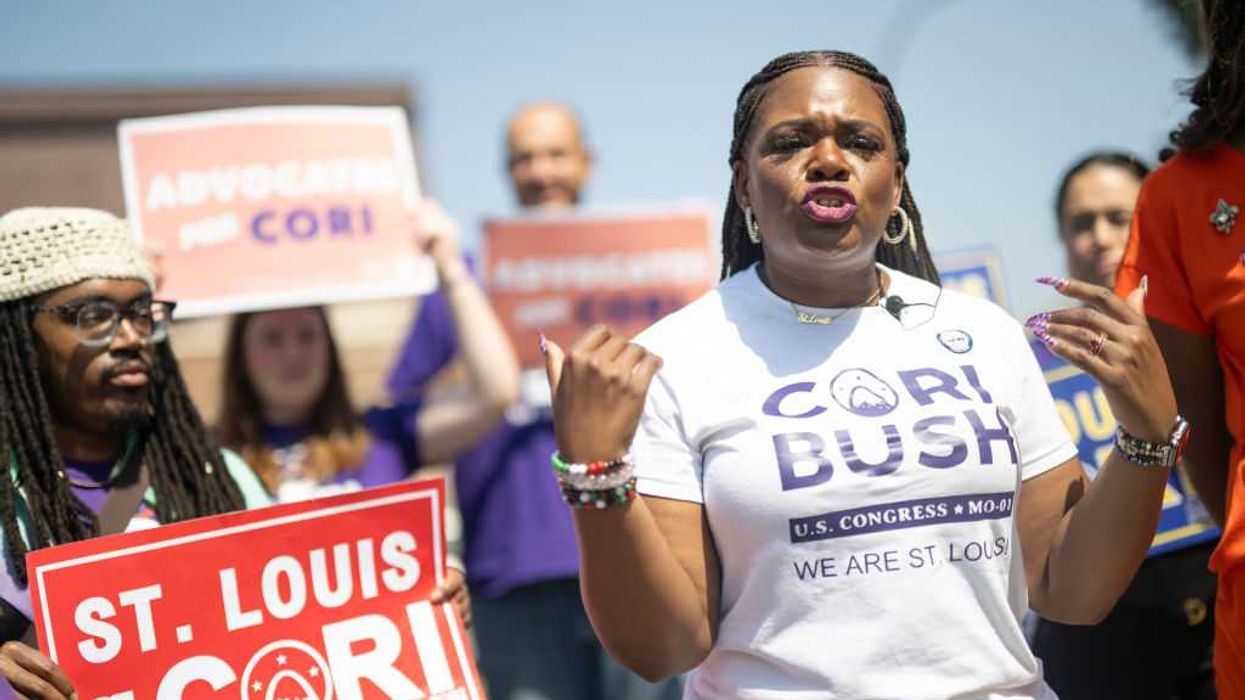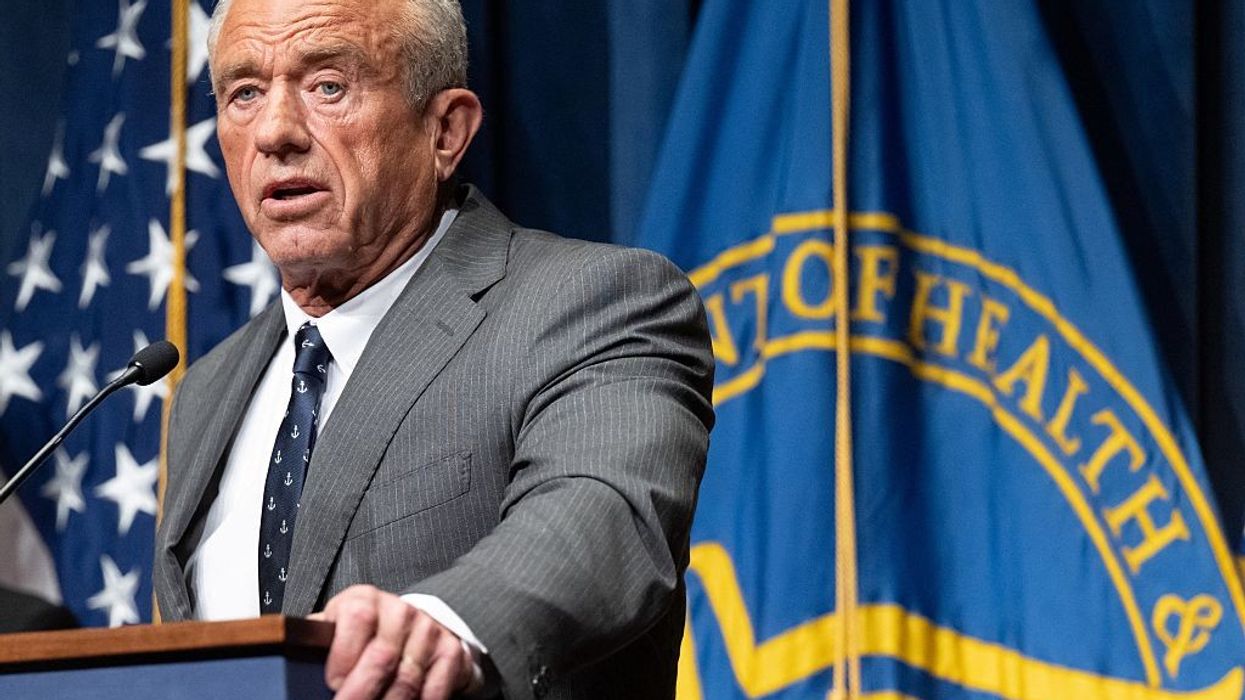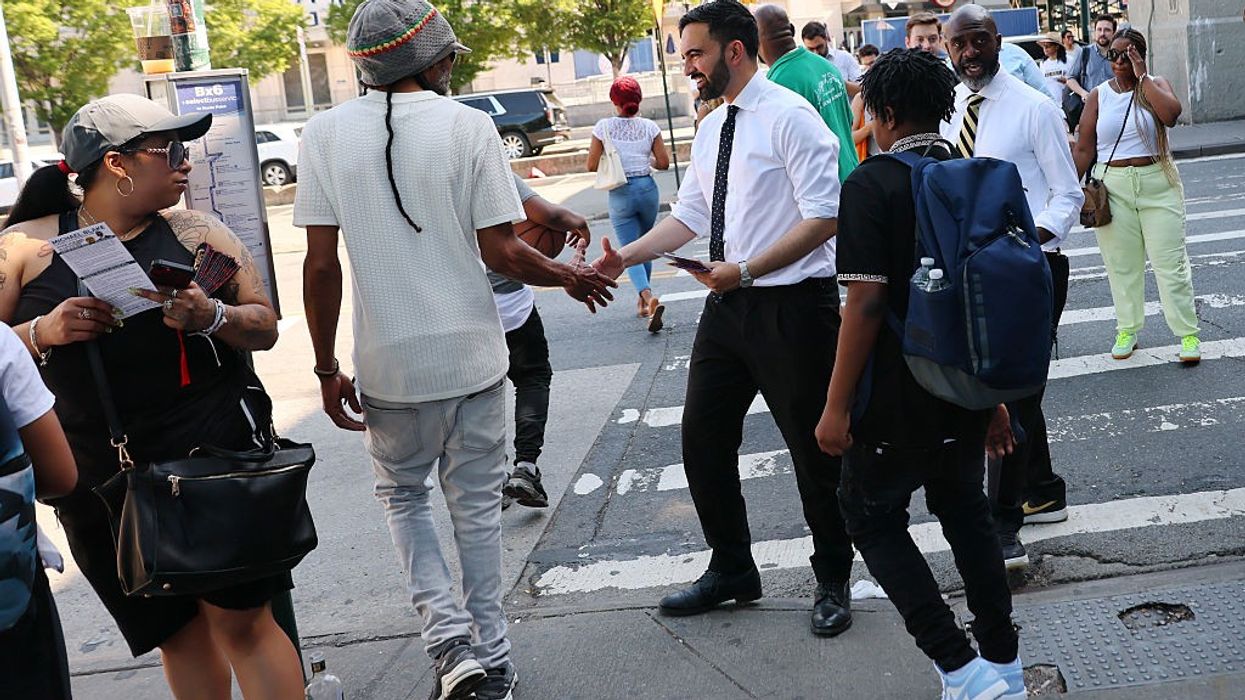'Taking On AIPAC Again,' Cori Bush Launches Campaign to Win Back House Seat
"I’m running again because St. Louis deserves leadership that doesn’t wait for permission, doesn’t answer to wealthy donors, and doesn’t hide when things get tough."
Former Democratic Congresswoman Cori Bush is running again in Missouri to reclaim the US House seat from which she was ousted last year amid a tsunami of campaign spending against her and other progressives by the Israel lobby.
"St. Louis deserves a leader who is built different. That’s why I’m running to represent Missouri’s 1st District in Congress," Bush announced Friday on social media. "We need a fighter who will lower costs, protect our communities, and make life fairer. I’ll be that fighter."
“I ran for Congress to change things for regular people,” Bush says in her first 2026 campaign ad. “I’m running again because St. Louis deserves leadership that doesn’t wait for permission, doesn’t answer to wealthy donors, and doesn’t hide when things get tough.”
Bush—a two-term member of the so-called "Squad" of progressive House lawmakers—was defeated in her district's August 2024 Democratic primary by current Rep. Wesley Bell (D-Mo.), a former county prosecutor.
Nearly two-thirds of Bell's campaign funding came from one source: The American Israel Public Affairs Committee's independent expenditures arm and conduit for dark money, the United Democracy Project, which allocated more than $100 million toward defeating candidates AIPAC deemed insufficiently supportive of Israel.

UDP also spent heavily last year to defeat then-Congressman Jamaal Bowman (D-NY) and to help thwart the Democratic congressional candidacy of Susheela Jayapal in Oregon and former Republican Congressman John Hostettler's comeback bid in Indiana.
AIPAC's largesse was stoked by Bush's steadfast advocacy for Palestine and staunch opposition to Israel's genocidal war on Gaza. It was Bush who, just over a week into Israel's genocidal retaliation for the Hamas-led October 7 attack, introduced the first House ceasefire resolution.
Bush was also one of the first lawmakers to call Israel's annihilation and starvation of Gaza a genocide—as countless observers have since done, including numerous members of Congress, national governments and leaders, jurists, Holocaust scholars, and United Nations experts.
However, it was championing the needs and values of her overwhelmingly working-class community that propelled Bush—who rose to prominence during the Ferguson, Missouri protests against the police killing of unarmed Black man Michael Brown—to her 2020 Democratic primary victory over an opponent whose family had held the 1st Congressional District seat for half a century.
For example, during the Covid-19 pandemic, Bush led a five-day sit-in outside Congress, where she slept rough with other Squad members and persuaded the Biden administration to extend a temporary eviction moratorium. She also secured hundreds of millions of dollars in economic recovery funds via the American Rescue Plan signed by former President Joe Biden in 2021.
While Bell dismissed Bush's comeback bid by contending that "the headlines and controversies of the past aren’t what we need," progressives cheered her reentry into the political arena.
The political action group Our Revolution quickly endorsed Bush, as it had previously done.
BIG NEWS: Cori Bush could officially announced her run for Congress 👀🔥The nurse. The activist. The Congresswoman who camped on the Capitol steps to stop evictions. The one who never backed down. 👇 🧵
[image or embed]
— Our Revolution (@our-revolution.bsky.social) October 3, 2025 at 7:51 AM
"Cori Bush embodies the values of our movement—she is a nurse, a pastor, and an activist who rose up from Ferguson to fight for working families in Congress,” Our Revolution executive director Joseph Geevarghese said in a statement. “She has been a fearless advocate for Medicare for All, student debt cancellation, housing rights, climate justice, and an end to US military support of Israel."
"That’s why oligarchs and dark money super PACs spent millions to buy this seat and silence her voice," he added. "But they cannot silence the people she represents, and Our Revolution is proud to stand with her as she takes back the people’s seat in Missouri’s 1st.”


